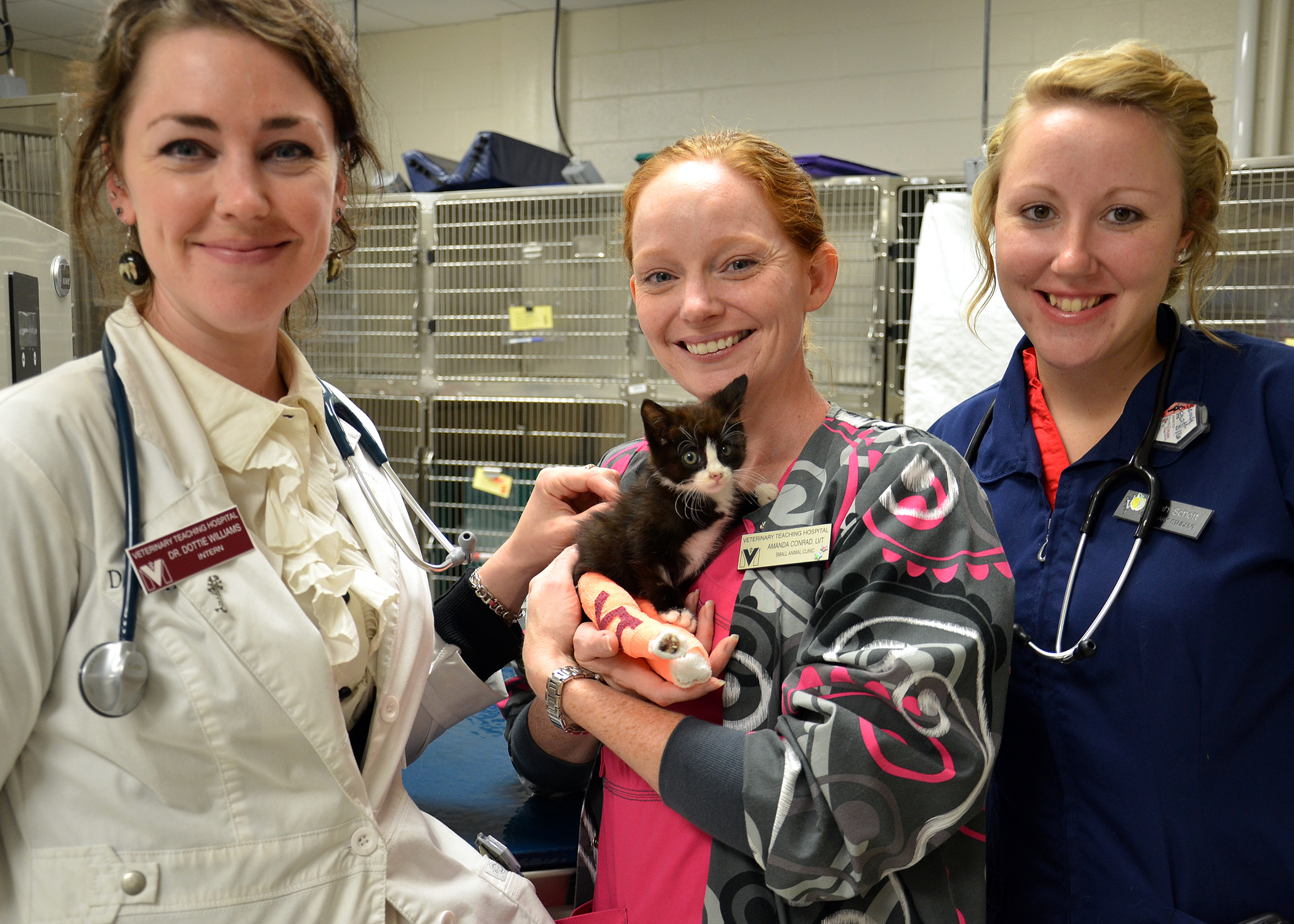Virginia Tech's Small Animal Community Practice earns cat-friendly, low-stress certifications

Pet owners have two new reasons to be confident that their furry friends are in the best of care at the Virginia-Maryland College of Veterinary Medicine’s Veterinary Teaching Hospital.
The hospital’s Small Animal Community Practice recently received two new certifications. In June, the American Association of Feline Practitioners (AAFP) recognized the Small Animal Community Practice with a Cat Friendly Practice certification at the silver level. In May, the practice received a Low Stress Handling certification at the silver level through a separate program.
Established in the past two years, the Cat Friendly Practice certification program seeks to improve the treatment, handling, and overall health care of cats by equipping veterinary practices with the tools, resources, and information needed to evaluate their standards of care. The Small Animal Community Practice, which provides primary and preventive care for clients within a 35-mile radius of Blacksburg, is one of only three university clinics to earn the certification. The others are at The Ohio State University and Auburn University.
“For general practices, the idea is that we appreciate cats, we understand cats, and we are trying to make you and your cat’s veterinary visit as easy and low-stress as possible,” said Dr. Michael Nappier, assistant professor of community practice in the Department of Small Animal Clinical Sciences. “For university practices such as ours, this also means that we are teaching students that it is not just business as usual when treating cats in a clinical setting.”
Nappier organized the clinic’s efforts to achieve the certification. He added, “We are working to improve the quality of care for our feline patients with each student who completes a clinical rotation in the Small Animal Community Practice.”
Even though cats outnumber dogs by millions in the United States, almost twice as many cats as dogs never visit the veterinarian, according to the AAFP. Forty-one percent of cat owners visit the veterinarian only for vaccinations, and 39 percent of cat owners report that they would only take their cat to the veterinarian if the cat was sick. Nappier said the Small Animal Community Practice has three to four times as many dog patients as cats.
To prepare for the Cat Friendly Practice certification, the veterinarians and staff completed several months of training and education. They also reviewed their standards of care for feline patients, including handling and interaction with the animal, examination rooms and ward facilities, surgical equipment and dentistry, and client communication.
“There’s an old axiom in veterinary medicine that cats are not small dogs,” said Nappier, who is board-certified in canine and feline practice with the American Board of Veterinary Practitioners and a member of the AAFP. “We want to make sure that we aren’t mistakenly treating them the same way we treat dogs. For a cat, often the least favorite part of a veterinary exam is the restraint. We want to make sure that we are avoiding aggressive restraint techniques, especially when we are removing an animal from a carrier, so that they are calmer during their visit. We are also working to educate clients about the best way to get their cat into a carrier.”
Meanwhile, the silver-level Low Stress Handling certification recognized the Small Animal Community Practice’s efforts to provide a good-natured environment for both dogs and cats. Established by the late Dr. Sophia Yin, a veterinarian and animal behaviorist, the certification program demonstrates a hospital’s commitment to low-stress handling methods with more than half of veterinarians and staff needing to receive individual certifications.
Dr. Lara Bartl, assistant professor of community practice, organized the effort to make Virginia Tech the first university with a veterinary teaching hospital to earn the Low Stress Handling certification.
Written by Michael Sutphin.







